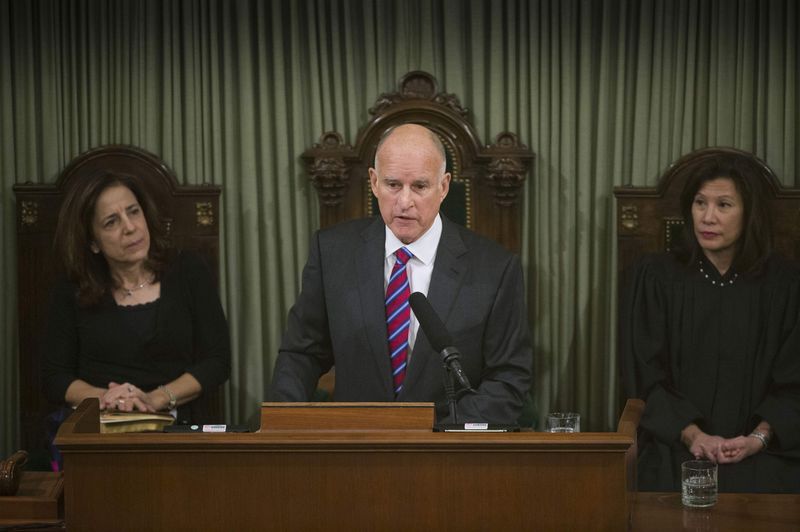By Sharon Bernstein
SACRAMENTO, Calif. (Reuters) - California Democratic Governor Jerry Brown on Friday released his 2015-16 state budget, calling for $113 billion in proposed general fund spending, up just 1.4 percent from the year before despite the state's substantial economic recovery.
Brown, a fiscal moderate whose tight-fisted policies helped stabilize state finances, proposed modest increases in spending on public schools and for health and human services, but tightened the budget for some departments.
"We have a carefully balanced budget - more precarious than I would like," Brown said. "It's not a time for exuberant overkill."
Brown stuck to his plan to increase funding for the University of California by 4 percent, but only if the system agreed to freeze tuition. The move was a step in an ongoing fight with University President Janet Napolitano, who has demanded that Brown double the funding increase for the system and plans to raise tuition if he does not.
On Friday, Napolitano said she was disappointed in the governor's proposal, but said she expected to continue negotiating with the governor and members of the legislature as they wrangle over the budget's final form over the next six months before the new fiscal year begins July 1.
For public elementary and secondary education, Brown would spend $65.7 million, up a modest $2.5 million from last year based on a state law that sets minimum education spending each year based on the size of the overall budget and other factors.
Brown's plan also includes the first $532 million in spending backed by $7.5 billion in bonds authorized by voters in November, for measures aimed at shoring up the state's water supply, which has been battered by years of drought.
The budget aims to strengthen the state's rainy day fund with an additional $1.2 billion to pay down debts.
Senate Republican leader Robert Huff called Brown's proposal "a frugal plan" and a good starting point, praising the governor's moves to pay down debt.
But Brown's frugality has put him in conflict with some progressive Democrats, who have been arguing for a restoration of safety net cuts implemented during the recession.
Andrew Cheyne, policy director for the California Association of Food Banks, said the state remains $15 billion behind pre-recession spending on services to help impoverished and disabled Californians, despite the state's considerable economic recovery.
In a swipe at the Governor's catchphrase "wall of debt" to describe money owed by the state, Cheyne said, "We also have to dismantle the wall of poverty."
Assembly Speaker Toni Atkins, a Democrat from San Diego, praised the governor for restoring some services for disabled Californians that had been cut during the economic downturn, but hinted at negotiations to come, calling his proposal a "realistic and practical starting point."
The governor said he wanted to tackle the state's $72 billion unfunded liability for retiree healthcare benefits by paying for it ahead of time.

When Brown took over in 2011 from two-term Republican Governor Arnold Schwarzenegger, the state faced an 18-month budget gap of $25 billion.